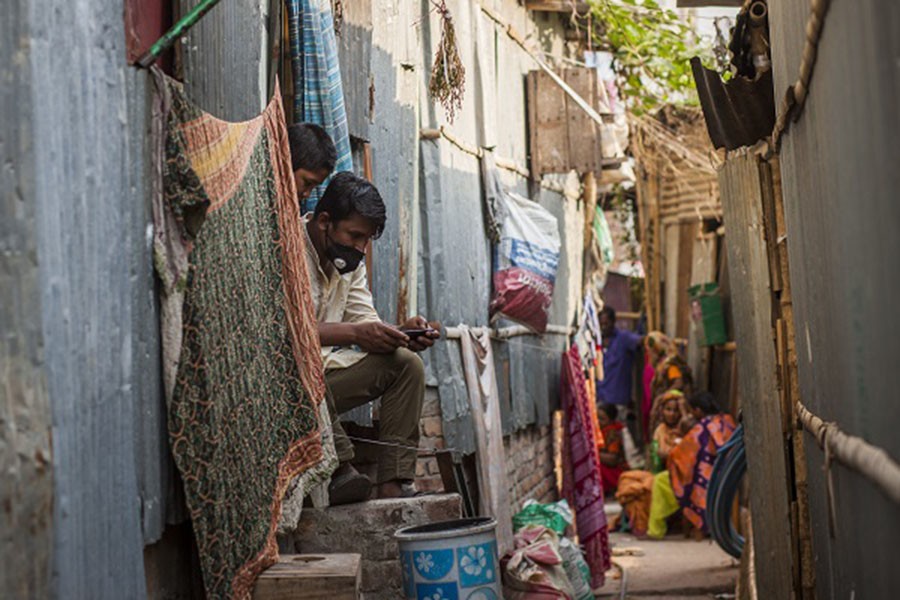Low-income people especially returnee migrant workers and urban informal workers have lost at least one-third of their income in one year compared to the pre-pandemic period, according to a study unveiled on Tuesday.
Against the backdrop of decline in income, a majority of them borrowed heavily from informal sources to fall into debt trap, it said.
The observations came at a webinar to disseminate the findings of a report titled "Covid-19 Livelihood Crisis, Social Cohesion Challenges and Mitigation Options: An Empirical Study" by Centre for Peace and Justice under BRAC University.
Moderated by Centre for Peace and Justice Executive Director Manzoor Hasan, BRAC Chairperson Dr Hossain Zillur Rahman and United Nations Development Programme (UNDP) Resident Representative in Bangladesh Sudipto Mukerjee took part in the webinar as guest speakers while Dr Sanaul Mostafa and Dr Shahidul Islam of Centre for Peace and Justice presented the keynote paper.
ActionAid Bangladesh (AAB) Country Director Farah Kabir, Bangladesh Institute of Development Studies (BIDS) Senior Research Fellow Dr Nazneen Ahmed, Senior Programme Specialist of James P Grant School of Public Health under BRAC University Dr Yameen Mazumder, and Head of Strategy and Planning of Bidyanondo Foundation Monjoor Morshed spoke as the panellists.
In a joint presentation, Mr Mostafa and Islam said food security has been greatly compromised as 40 per cent of the surveyed households had difficulties in having three meals a day.
At the same time, 70 per cent of them consumed a less quantity of food while protein intake was reduced for 87 per cent of the respondents.
Female respondents' work burden increased from 18 per cent at the end of 2019 to 53 per cent during the pandemic, they said.
The survey also revealed that over 70 per cent of the pandemic-affected workers expect support from the government to recover from pandemic-induced economic losses.
The study targeted three groups on the survey--readymade garment workers, migrant workers who returned during the pandemic, and urban low-income groups, mostly informal workers.
Speaking on the occasion, Dr Rahman, also the chairman of Power and Participation Research Centre (PPRC), said the study has certainly pointed out the myriad ways to spot gaps in policies intended to lift low income people out of the pandemic fallout.
He said credible research is one of the ways to inform policymakers about the voice of vulnerable groups, including the "new poor" who has emerged during the pandemic.
He further mentioned that research organisations should identify core issues related to ensuring social justice and find institutional pathways to remedy.
Ms Kabir said throughout the pandemic, different dimensions of gender-based violence were found increasing mainly due to income and job loss, mental trauma of the Covid-19 disease, lockdowns etc.
"Women who were never subjected to gender-based valance earlier have also become new victims," she said.
Due to long closure of educational institutions and household income drop, child marriages have spiked significantly, she mentioned.
She also suggested that the researchers look into thematic and specific sectors to unearth underlining problems instead of just focusing on broad scenario.
Mr Mukerjee said the study report is published at a time when the national budget discussion is underway and the findings of the study should be placed before the policymakers for better impact.
ahb_mcj2009@yahoo.com


